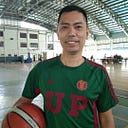Be Like A Bee
by Oliver Carlos
Dr. Francisco Neri Tamolang is my maternal grandfather. He’s larger than life. He had so many achievements in his long life that one blog is not enough contain them all. In a nutshell, he’s a director of a government office, a multi-awarded researcher, scientist, musician, painter, pilot, World War 2 hero, farmer, businessman, forester, college professor, a loving husband and father to 10 successful children. Everybody in our family — children, grandchildren, and in-laws — call him “Papang”.
Papang was born on January 29, 1916 in Aguilar, Pangasinan to Marcos Tamolang, a Filipino-Chinese, and Irene Neri, a Pangasinense. Francisco went to UP College of Forestry as a working student before the war. It’s there where he met Amparo Bauzon Blando, a UST student vacationing in Los Banos. It was there in that university town where the couple settled down and built a very large family.
After retiring in 1981 as director of the Forest Products Research and Development Institute (FPRDI), Papang and Mamang migrated to Toronto, Canada. They lived there for 2 decades before returning to the Philippines to live their last few years here. Papang passed away in 2005 at the age of 89, while Mamang followed him in 2017 at the age of 98.9.
I was a little boy when Papang left for Canada, and when he returned, he was already very old. I didn’t get to have much bonding time with him. I just learned all the things about him from stories told by my Mom, uncles and aunties.
The internet wasn’t invented yet or wasn’t so advanced yet during the years they lived abroad. I really didn’t have conversations with Papang. But I do remember just one meaningful conversation I had with him, it’s the first and last one I had with the great old man. It’s a conversation that was so heavy with wisdom.
One day, when I was accompanying him walking in the garden in front of my parents’ house in Los Banos, Papang stooped down and scattered some seeds on the soil. He said that he got those seeds from our recent trip to Pangasinan. He got it from a plant there in the province and put them in his pocket. He told me to follow his example, to do the same wherever I would go.
Papang said that I should make it a habit to pick up seeds, put them in paper envelopes or in my pocket, then scatter them to other places I would go to. The seeds would then grow and add to the biodiversity of its new habitat. The more species there are in an ecosystem, the more stable it becomes.
Figuratively speaking, Papang’s advise also makes a lot of sense. Seeds symbolize bits and pieces of knowledge and wisdom I pick up here and there. What I learned in school, at work, at home, in friendships and relationships, in life, I must sow them elsewhere, to other people in places where God would bring me to. I must propagate these seeds of wisdom to make the world a better place.
Similarly, we must also sow God’s word or Bible lessons in the hearts of other people so they would experience the blessings that go with hearing it. We should not feel discouraged when we don’t see the seeds sprouting right away. It is God who will cause them to grow, so just keep on sowing seeds. We read in 1 Corinthians 3:6–9 (NLV):
“I planted the seed. Apollos watered it, but it was God who kept it growing…. the one who plants or the one who waters is not the important one. God is the important One. He makes it grow….. For we work together with God. You are God’s field.”
You may not be a teacher or preacher, but to begin with, I’m sure you have some Godly wisdom and virtues that you can sow in the lives of your children, relatives, and friends. Don’t be afraid to sow them today, for tomorrow you will see them sprout and bear fruit. So keep on picking Biblical seeds, gather them in heaps, bring them along wherever you go, and one day when you look back at the path you’ve taken, you will see a bountiful harvest.
